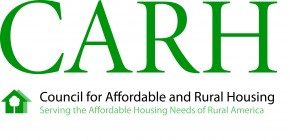- November 2022
- October 2022
- September 2022
- August 2022
- July 2022
- June 2022
- May 2022
- April 2022
- March 2022
- February 2022
- January 2022
- December 2021
- November 2021
- October 2021
- September 2021
- August 2021
- July 2021
- June 2021
- May 2021
- April 2021
- March 2021
- February 2021
- January 2021
- December 2020
- November 2020
- October 2020
- September 2020
- August 2020
- July 2020
- June 2020
- May 2020
- April 2020
- March 2020
- February 2020
- January 2020
- December 2019
- November 2019
- October 2019
- September 2019
- August 2019
- July 2019
- June 2019
- May 2019
- April 2019
- March 2019
- February 2019
- January 2019
- December 2018
- November 2018
- October 2018
- September 2018
- August 2018
- July 2018
- June 2018
- May 2018
- April 2018
- March 2018
- February 2018
- January 2018
- December 2017
- November 2017
- October 2017
- September 2017
- August 2017
- July 2017
- June 2017
- May 2017
- April 2017
- March 2017
- February 2017
- January 2017
- December 2016
- November 2016
- October 2016
- September 2016
- August 2016
- July 2016
- June 2016
- May 2016
- April 2016
- March 2016
- February 2016
- January 2016
- December 2015
- November 2015
- October 2015
- September 2015
- August 2015
- July 2015
- June 2015
- May 2015
- April 2015
- March 2015
- February 2015
- January 2015
- December 2014
- November 2014
- October 2014
- September 2014
- August 2014
- July 2014
- June 2014
- May 2014
- April 2014
- March 2014
- February 2014
- January 2014
RD Management Fees Published for Fiscal Year 2020; HUD Announces Proposed Fair Housing Disparate Impact Rule
BROADCAST EMAIL – Regulatory Update
August 20, 2019
1) Management Fees Published for Fiscal Year 2020
Yesterday, Rural Development (RD) published a Procedural Notice (PN) 526 announcing final management fees for Fiscal Year (FY) 2020. Management fees will vary from state to state because RD has based the increase on HUD’s Operating Cost Adjustment Factor (OCAF) which varies based on location in the country and is applied to each state’s current maximum fee. (View Attachment 3-F, Chapter 3 of HB-2-3560 (page 55-56) for the chart listing each state’s management fee adjustment for FY 2020.)
As a reminder of the background, RD previously introduced OCAF as the base and CARH had requested that additional add-on fees should also be part of the management fee calculation. The additional add-on fees have not yet been agreed to by RD. Although management fees for FYs 2016-2020 have been based on OCAF, we will continue to advocate for add-on fees in addition to the use of OCAF for the base of the fees. At CARH’s Annual Meeting and Legislative Conference in June, the Management Committee formed a special subcommittee to work with the new national RD office staff on this issue.
2) HUD Announces Proposed Fair Housing Disparate Impact Rule
Also yesterday, HUD published a Proposed Rule entitled, “HUD’s Implementation of the Fair Housing Act’s Disparate Impact Standard” in the Federal Register. In August 2018, CARH, along with several other affordable housing providers, sent a comment letter that responded to HUD’s request seeking comments on reconsideration of the current disparate impact rule. We expect to submit further comments on this latest proposal. The changes in the proposed rule appear to bring HUD rules in line with the Supreme Court’s decision Texas Department of Housing and Community Affairs v. Inclusive Communities Project, Inc. That decision created a refined test for demonstrating disparate impact violations that puts more focus on demonstrating a “robust” causal connection between the challenged policy and the harm alleged, and showing that the challenged practice constitutes an “arbitrary, artificial and unnecessary” barrier to housing for persons in protected classes, among other changes in Inclusive Communities. The decision also created a refined test for demonstrating disparate impact violations that puts more focus on demonstrating a “robust” causal connection between the challenged policy and the harm alleged, and showing that the challenged practice constitutes an “arbitrary, artificial and unnecessary” barrier to housing for persons in protected classes, among other changes. Comments are due on October 18, 2019.
Please contact the CARH national office at carh@carh.org or 703-837-9001 should you have questions or concerns.





